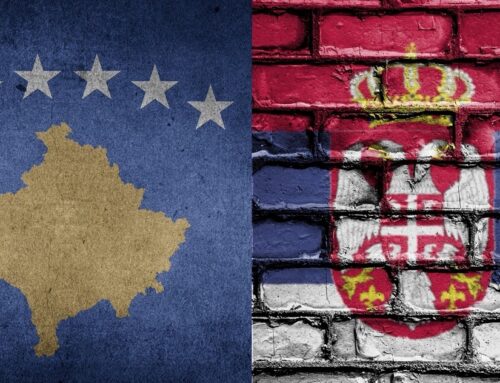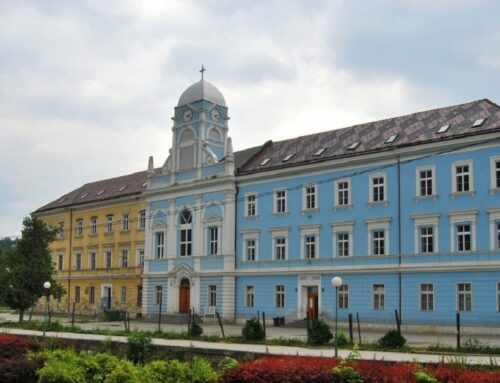Abstract: The intrinsic character of the Venezuelan crisis resulted with several human rights shortages, particularly the food privation. Indeed, this crisis led to the emergence of the principle of forced migration that negatively influenced the people’s modes of life. Therefore, the intentional fabrication of Venezuelan crisis is actually the archetype of the Holodomor famine that occurred in the 1930s in Soviet Ukraine. Chiefly, the insightful, yet comprehensive PTS (Potential Taxable Surplus) theory of the American biologist Jared Diamond in his book ‘Guns, Germs and Steel’, is widely known as the embodiment of the regular crop-rotation stability of the society. Hence, William McNeil in his book ‘Plagues and Peoples’ stressed the paramount importance of the concept of successful macro-parasitism that enables the preservation of a regenerative food economy. The State ostensibly holds the prerogative of regulating the food economy. In this case, the State increases the tax-value of the PTS more than the average, the whole food economy collapses and the period of unsuccessful macro-parasitism emerges. The negative consequences of the unsuccessful macro-parasitism lead up to food shortages and massive famines and starvation. The State, firmly, is the parasite that attacks the host. The economy is no longer reproducible, such as the one in Ukraine during the 1930s, in the aftermath of the disastrous food policy applied by Stalin. In Venezuela, due to hyperinflation the situation is deteriorating. There are massive violations of several major articles of Human Rights conventions such as the article 11 of the International Covenant on Economic, Social and Cultural Rights (ICESCR), the articles 25 and 27 of the Convention on the Rights of the Child (CRC) and the article 25 of the Universal Declaration of Human Rights. All these articles guarantee the pre-eminence of the right to an adequate standard of living, especially the accessibility of food and health. There is a huge necessity to situate the source of the problem and propose a sustainable solution. Indeed the intentional shortage of food and health supplies is a a breach of the legitimacy of international law. Therefore, the food shortage in Venezuela is condemnable by the International Criminal Court for crimes against humanity and frequent, indeed intentional abuses of power of the presidential, yet legislative authority.
Keywords: crisis, famine, Venezuela, Ukraine (Holodomor), abuse of power, human rights violations
The Universal Institutionalization of Human Rights
The institutionalization of Human Rights as a global phenomenon cemented its links with the development of the society. Basically, the institutionalization launched the process of amelioration of the functioning of the institutions and its various sub-divisions. Hence, institutionalization doesn’t mean a complete eradication of various human rights violations. The State holds the monopoly of the legitimate use of violence according to Weber. Briefly, the State is the predator ‘Who’ paves the way for intentional breaches of normative cardinal principles of International Law. The people, qualified as distinguished and privileged members of the State hold the sovereignty. On the other hand, the State manipulates intentionally the legitimate principles of Human Rights constitutionally guaranteed. Before highlighting the roughly comparable situations of the Holodomor Ukrainian crisis and more importantly the humanitarian crisis in Venezuela, it is worth to underline that Niklas Luhmann stressed the paramount importance that the phenomenon of institutionalization of human rights enabled the emergence of the concept of the individual as the central notion of the universal arena of human rights. That is to say, the notion of the individual is embedded in all spheres of socially defined human rights derived from the concept of universalism.
Peculiar Examples of Humanitarian Crisis
It is widely recognised that the intentional fabric of humanitarian crisis in the case of Holodomor of Ukraine and in present day Venezuela, is an ample evidence of the hostile, yet humanitarian atrocities. The humanitarian crisis in Venezuela can be characterised as the product of imperialism from one side. That is to say, there are countries such as the Big Powers (the USA, the UK, France) feeling the necessity to govern the whole world indeed by launching an economic polarisation within the political sphere of the ruling elite. Hence, the intervention of the Big Powers by provoking a humanitarian crisis makes them accomplices altogether with the ruling political elite of Venezuela. By making an insightful legal analysis, both accomplices shall be judged for exacerbating the situation by preventing the entrance of humanitarian aid. Indeed, both accomplices shall be condemned for crimes against humanity. Hence, since the invention of various legal mechanisms for Human Rights protection during the course of 20th century, it could be extrapolated that politics dominates the legal world or the human rights mechanisms are political instruments. That is to say, there is a normative hierarchy of superiority and subordination that explicitly favours the political power over the legal one. Obviously, this creates endless dichotomies that will probably never relinquish the responsibility of certain political figures.
Possible legal remedies
After devoting a relatively large space to the political, yet economic reasons of the crisis in Venezuela, it is time to analyze the intrinsic character of the legal remedies and its structural paradigm by invoking the similitudes with the highly comparable Holodomor Ukrainian humanitarian crisis classified by some international and Ukrainian scholars as genocide. Ultimately, there is no force or legal mechanism that can efface the already committed atrocities. Legal mechanisms only examine the gravity of the atrocities committed and evaluate the allocation of indemnities. Food shortages or food privation is a mechanism of repression that is heavily condemnable by the International Criminal Court.
The Court launched the procedure of preliminary examination of the alleged criminal atrocities and crimes against humanity in Venezuela. However, due to the International Criminal Court’s long procedure of investigation and the superiority of the domination of the politics over the legal power is not much of a precedent over time. Hence, this doesn’t convey an ideal institutionalization of legal remedies. Stephen Devereux, a famous development economist qualifies the famine as an intentional political crime provoked abruptly by politicians and as a product of absurd political games taking into consideration individual interests, not collective ones. There is a very general adopted definition of famine as a product of natural disasters, excluding the intrinsic human character. That is to say since massive famines occurred in a very recurrent fashion in the international arena in the course of the 20th century, the intrinsic human factor emerged as a solidification of divergence, primary contributor and negative facet of the intentional fabric of famine crisis. The human factor is metaphorized by indicating the disastrous governmental, yet legislative policy of food economy. Indeed, if a group of people does not endorse the policy of the governments and revolt against it, then the State – the holder of the use of legitimate monopole attacks the Host. There is political persecution and a period of unsuccessful macro-parasitism that escalates the core political and economic sphere. The State ostensibly grapples for the establishment of institutional harmony, but in a totally collapsed system doesn’t seem to be willing to thrive.
The famine of the Holodomor: unsuccessful macro-parasitism
Subsequently, history is a perpetual commencement. That is to say, the famine that occurred in Holodomor in Ukraine in the course of the 1930s now started all over again, but this time in Venezuela. Hence, Ukraine, in the first half of the 20th century was a crucial and primary agricultural contributor for the entire URSS regenerative food economy. Ostensibly, Lenin attempted to reconcile the nationalist movements of Ukraine by applying a strategic soft policy. A few decades later, Stalin prepared a pragmatic strategy to quench abruptly the thirst of the national Ukrainian movements and implement the disastrous policy of collectivization. That is to say, in the process of collectivization the country’s agricultural policy is organized and controlled in its entirety by the executive, yet governmental power. However, Stalin established a quota-based mechanism. Despite the industrial reform pressure, the Kulaks (the Ukrainian rich peasant and farmer class) resisted. The Kulaks governed beforehand the complete peasant economy. Stalin not willing to strike the balance abrogated the policy of the Kulaks and eradicated every nationalistic movement by implementing the policy of dekulakization altogether with the policy of collectivization. An intrinsic characteristic of these two policies is its hybrid nature. There was an intentional transition of private property of the kulaks into the hands of the government. There was a so-called emergence of economic absolutism. Stalin couldn’t solve the situation in a peaceful fashion. Indeed, the quota-based mechanism established by Stalin was also not in conformity with the actual agricultural circumstances of that period. The quota for grain was impossible to fulfill. Therefore, the entire economic system of the ex-URRS spun out of control and resulted in a massive famine. The prominent Historian William McNeill in his famous book ‘Plagues and Peoples’ (1976) outlined the concept of macro-parasitism that actually highlights the theory of the parasite and the host. The parasite (the State i.e. the collectivization policy of Stalin) attacked the host (the Kulaks). Therefore, the emergence of the period of unsuccessful macro-parasitism was inevitable. The State utilized totally the consumption grain fond preventing the economy to reproduce itself. The State consciously violated its most fundamental prerogative – the sovereignty of the people. That is the most frequent consequence of the communist kind of absolutism – the more you rise, the more you closely fall. In comparison, the present humanitarian crisis in Venezuela shares roughly the same characteristics. A new migration crisis was provoked by the food and medicine shortage, hyperinflation and the massive rejection of humanitarian aid. There is an international outcry for help.
The Responsibility to Protect (R2P): famine struggles
The principle of the Responsibility to Protect (R2P) was introduced at the summit of 2005 as a cardinal principle of international law. The nature of the Responsibility to protect is hybrid. At first glance, if the State doesn’t fully implement the application of the principle of Responsibility to protect its own people from genocide, food deprivation and starvation, then the governing authority commits a massive usurpation and violation of the state sovereignty and deteriorates the peaceful authority of the Rule of Law. At a second glance, if a foreign state attacks another state (illegal coercion) because of political, yet economic interests, then that state intentionally decided to endanger the international peace and security guaranteed by article 24 of the UN Chart and the Statute of the International Court of Justice. Overall, the international responsibility could be engaged in front of the International Criminal Court for crimes against humanity. The presidential authority and the legal institutions of Venezuela failed to protect its own citizens. The presidential elections in Venezuela that were held in 2018 were totally illegitimate and the sovereignty of people to choose freely was violated. Thus, Venezuela and the USA do not have strong diplomatic relations because of political, yet economic interests. The USA blocked the trade routes of Venezuela and at the same time provided humanitarian aid that the presidential authority rejected. The USA committed economic coercion on the Venezuelan food economy and the rejection of the international humanitarian aid by the presidential authority of Venezuela caused famine in the country.
Legally observed, there is a hybrid policy of unsuccessful macro-parasitism. The international responsibility of the USA and Venezuela could be engaged by the International Criminal Court for crimes against humanity such as an intentional fabric of economic crisis that resulted in massive food privation and starvation i.e. famine. However, the USA is not a party to the Rome Statute of ICC. Therefore, legally seen, nothing could engage the responsibility of the USA. Venezuela is a party to the Rome Statute of the ICC. The rejection of the international humanitarian aid could engage the international responsibility of Venezuela in front of the ICC for provoking intentional famine. Obviously, the nature of the possibly engaged international responsibility will be slightly different. Thus, Venezuela failed to apply the principle of the Responsibility to protect its own people from starvation by rejecting humanitarian aid. The international responsibility of the USA could be qualified by the ICC as an intentional fabric of crisis i.e. economic coercion. Hence, due to the political nature of this economic coercion, it could be observed that politics dominate legal procedures and this feature is eventually connected with the notion of a hierarchy of superiority (The Big Western Powers) and subordination (countries in development). The Big Powers commit an abuse of their superpower as an instrument to control the countries in development (the roles of a master and a slave) that endangers the mission and the proper implementation of the Rule of Law within the scope of various types of constitutional legal systems. Briefly, the hierarchy of superiority and inferiority (subordination) makes the privileged holders of the sovereignty (the people) to be completely obliterated by the presidential, yet governing authority. David Marcus, a prominent scholar, stressed that the governments are the invisible criminals who commit silent famine murders: “The government officials responsible for crafting and pursuing faminogenic policies should be considered as history’s worst criminals”[1]. As set forth, there arises the question of double standards, which developed at a very quick pace over time. Why some people have more rights than others, especially while the Western Powers (the USA, the UK, France) dominate the development of certain countries, are indeed some of the numerous questions posed by civilians.
Thus, it is crucial to underline that the principle of the Responsibility to Protect (R2P) didn’t exist in the 1930s. Technically and legally, engaging the international responsibility of Stalin (Holodomor crisis) for failing to implement some form of protection, might seem unfounded in the eyes of the ICC, but could be founded under some other relative term, but definitely not under the term Responsibility to protect because this term is a relatively new phenomenon. David Marcus uses the term “criminalization of faminogenic behavior”[2] which is the equivalent of engaging the international responsibility for the State officials, a prerogative of the ICC. The textual evolution of terms in the treaties, the doctrine and the jurisprudence enabled the further understanding of the notion of famine crime and the possible remedies in a productive fashion in the international arena.
The Massive Violations of Treaties and Declarations: Famine Crime
Famine crime is one of the worst forms of repression. The political and economic coercion i.e. subjugation, creates perennial chaos. Thus, the states characterized by famine crimes take years, indeed, decades to recover, thanks to the solidarity of many countries i.e. international humanitarian aid, foreign investments, low taxes, etc. The vestige of massive human rights violations is a 20th -century phenomenon. The birth of many Human Rights declarations, treaties, ad hoc international tribunals occurred in the midst of the 20th century. In Venezuela, three crucial articles of three different human rights conventions were massively violated in a period of two years (2018/2019) encompassing the famine crime: article 11 of the International Covenant on Economic, Social and Cultural Rights (ICESCR), the articles 25 and 27 of the Convention on the Rights of the Child (CRC) and the article 25 of the Universal Declaration of Human Rights. These articles emphasize the pre-eminence of the right to an adequate standard of living, especially condemning every form of food privation and shortage of health supplies. In Venezuela, it is worth noting that the famine caused a shortage of health supplies that resulted in massive deaths of infants and seniors. Thus, this famine crime of Ukraine was considered in 1944 by Raphael Lemkin as a ‘genocide’[3]. It could be deducted that the Venezuelan humanitarian crisis is a genocide, even though the legal definition of genocide slightly differs regarding different crime contexts. The descriptions of these two famine crises concur with the notion of genocide.
Venezuelan refugee crisis: the notion of temporary protection
The humanitarian crises of Venezuela in retrospect started at the end of 2017. Obviously, whether politicians realise it or not, Venezuela is the second ‘Middle East’ in Latin America, by emphasising the presence of natural resources (particularly petrol) of great importance for the Western Powers (the USA, France, the UK). The intentional fabric of crisis is the primary cause of displaced people seeking asylum in other countries(generally neighbouring countries). There is a slight difference between an asylum seeker and a refugee. An asylum seeker could be defined as a refugee on the grounds of his/her own claims that there is an intentional racial or political persecution in the country where he or she comes from. A refugee shares a quite similar situation, but they are entitled to refugee status, while asylum seekers are not. Thus, asylum seekers have to follow the status of their application. The Venezuelan refugees shall be granted the title of international temporary protection from the neighbouring countries such as Columbia, Brazil, Argentina etc. The fact that the Venezuelan refugees are scattered all around Latin America demonstrates the complexity of their status and the situation in their country. Thus, they are endowed with the guaranteed right to be welcomed and well-nourished by the neighbouring countries. Temporary protection is crucial because it ensures the legitimacy of international law i.e. responsibility to protect due to an unexpected influx of refugees. The majority of the refugees might not have identification documents after fleeing a conflict or any form of political or economic persecution. The States are obliged to respect the principle of non-refoulement guaranteed by article 33 (1) of the 1951 refugee convention and issue temporary protection. If any state fails to implement the non-refoulement principle, then the international responsibility could be engaged by the ICC. It could be observed as a final note that the tribunal and courts implement long legal procedures of evaluation i.e. slowness of justice which for some refugees could be quite ambiguous as a glimmer of hope in the actual art of crafting peace.
References:
Bibilography list:
- Mikael Rask Madsen and Gert Verschraegen (2012), ‘Making Human Rights Intelligible: To- ward a Sociology of Human Rights’, HART Publishing, pp.191-214
- Robert Paul Churchill (2006), ‘Human Rights and Global Diversity’, Routledge, 25-37
- Renate Stark (2010), ‘Holodomor, Famine in Ukraine 1932-1933: A Crime against Humanity or Genocide?’ Irish Journal of Applied Social Studies, Est.1998, published by Social Care Ire- land David Marcus ‘Famine Crimes in International Law’ , The American Journal of International Law, 97, No. 2 (Apr., 2003), pp. 245-258
- R. Evan Ellis ‘The Collapse of Venezuela and Its Impact on the Region’ (July-August 2017), Military Review : https://www.armyupress.army.mil/Journals/Military-Review/English-Edition-Archives/July-August-2017/Ellis-Collapse-of-Venezuela
[1] Marcus, David. (2003).’Famine Crimes in International Law’. The American Journal of International Law,Vol. 97, No. 2 (Apr., 2003), p. 245
[2] Marcus, David. (2003).’Famine Crimes in International Law’. The American Journal of International Law,Vol. 97, No. 2 (Apr., 2003), p. 248
[3] Stark, Renate. (2010). ‘Holodomor, Famine in Ukraine 1932-1933: A Crime against Humanity or Genocide?’. Irish Journal of Applied Social Studies,Est.1998, published by Social Care Ireland, p.26
Nota bene: Paper was presented at Law Faculty of Koç University at the Student Law Symposium




